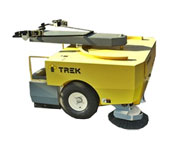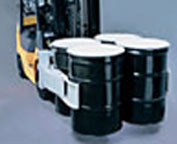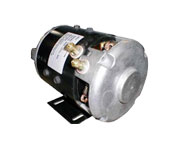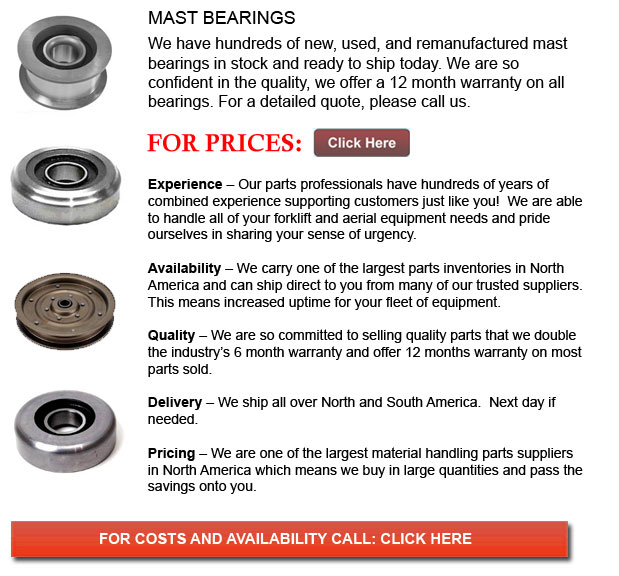
Mast Bearing - A bearing allows for better motion among two or more parts, typically in a linear or rotational sequence. They can be defined in correlation to the direction of applied weight the could take and according to the nature of their operation
Plain bearings are extremely widely used. They utilize surfaces in rubbing contact, normally with a lubricant like for instance graphite or oil. Plain bearings may or may not be considered a discrete tool. A plain bearing can have a planar surface which bears another, and in this case will be defined as not a discrete gadget. It could consist of nothing more than the bearing exterior of a hole along with a shaft passing through it. A semi-discrete example will be a layer of bearing metal fused to the substrate, while in the form of a separable sleeve, it will be a discrete device. Maintaining the proper lubrication allows plain bearings to be able to provide acceptable accuracy and friction at minimal cost.
There are various bearings that could help enhance and cultivate efficiency, accuracy and reliability. In various uses, a more appropriate and exact bearing can better weight size, operation speed and service intervals, thus lowering the total costs of using and purchasing equipment.
Several types of bearings with different lubrication, shape, material and application exist in the market. Rolling-element bearings, for instance, use spheres or drums rolling among the parts in order to reduce friction. Less friction gives tighter tolerances and higher precision than plain bearings, and less wear extends machine accuracy.
Plain bearings can be made of metal or plastic, depending on the load or how corrosive or dirty the surroundings is. The lubricants that are used may have drastic effects on the lifespan and friction on the bearing. For example, a bearing could function without whichever lubricant if continuous lubrication is not an option for the reason that the lubricants can be a magnet for dirt that damages the bearings or tools. Or a lubricant can improve bearing friction but in the food processing industry, it may need being lubricated by an inferior, yet food-safe lube in order to avoid food contamination and ensure health safety.
Most high-cycle application bearings require lubrication and some cleaning. Every so often, they could need adjustments so as to help reduce the effects of wear. Some bearings may need irregular maintenance so as to avoid premature failure, while magnetic or fluid bearings may need little preservation.
Extending bearing life is often done if the bearing is kept clean and well-lubricated, even though, several types of utilization make constant repairs a challenging task. Bearings located in a conveyor of a rock crusher for instance, are continuously exposed to abrasive particles. Regular cleaning is of little use as the cleaning operation is expensive and the bearing becomes dirty once again as soon as the conveyor continues operation.
![]() Click to Download the pdf
Click to Download the pdf
Forklift Parts








Lift Parts Express
TOLL FREE: 1-888-695-7994
LOCAL: 806-589-3629
6923 INDIANA AVE 228
Lubbock, Texas
forkliftpartslubbock.com
Email Us
About Us



